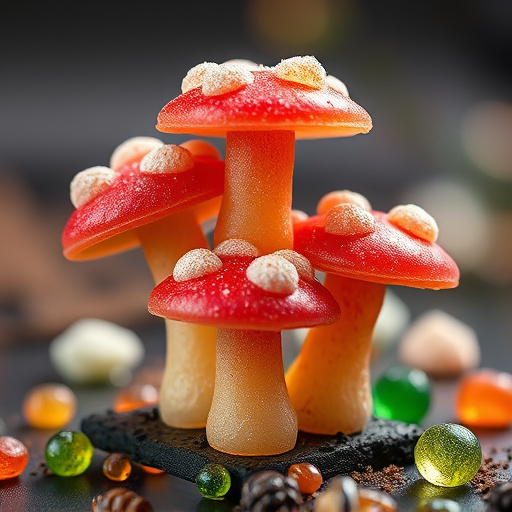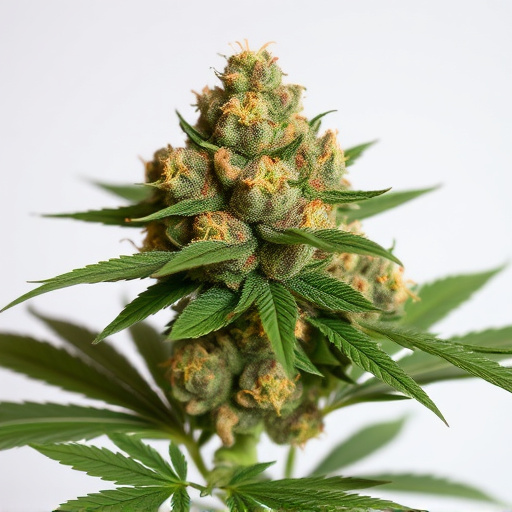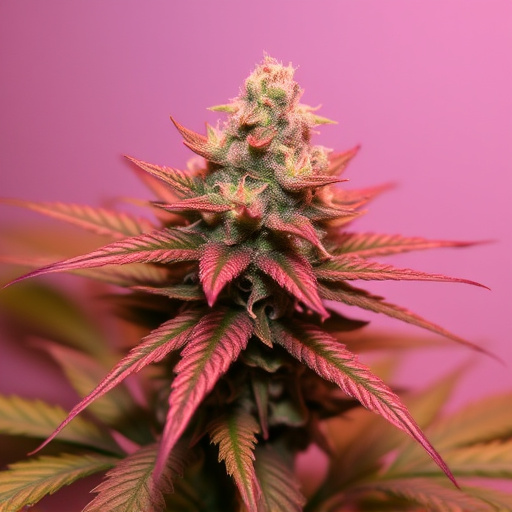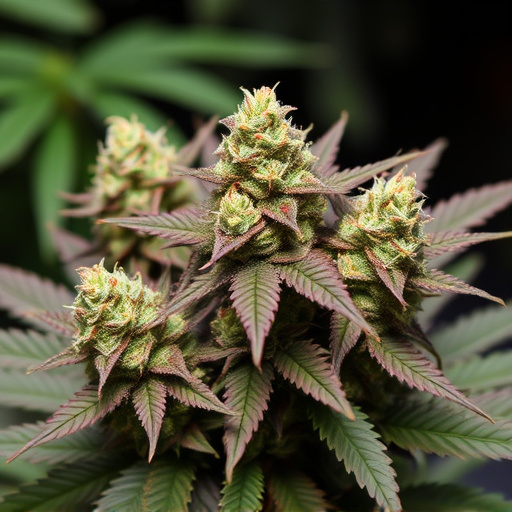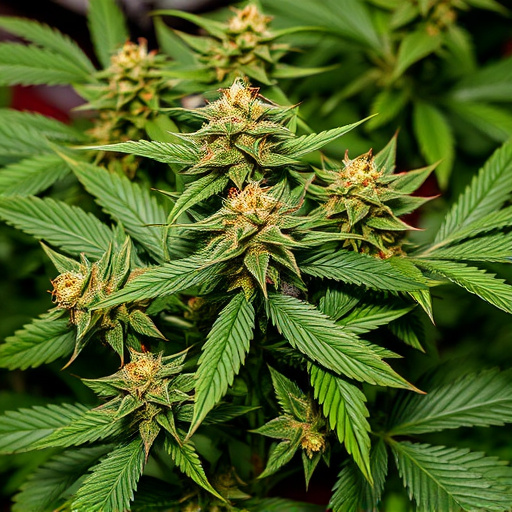Jamaican weed strains have gained recognition in the medical cannabis community for their high THC content and diverse terpene profiles, offering potent therapeutic effects. Compounds like myrcene, limonene, and pinene contribute to relief from chronic pain, anxiety, inflammation, and sleep issues. Starting with low doses is recommended due to variability in cannabinoid content; future research aims to unlock tailored treatments through exploration of cannabinoids, terpenes, and administration methods, potentially revolutionizing healthcare with safe cannabis-based alternatives.
“Unraveling the medical potential of cannabis flower, particularly the renowned Jamaican weed strains, offers a promising path forward in healthcare. This article delves into the intricate chemical composition of these strains and their therapeutic properties, shedding light on how specific compounds target various medical conditions. By exploring the safety, dosage, and future research directions, we aim to provide insights into the growing body of evidence supporting cannabis as a legitimate medicinal option. Discover the transformative potential of Jamaican weed strains in modern medicine.”
- The Chemical Composition of Jamaican Weed Strains and Their Therapeutic Properties
- Targeting Specific Medical Conditions with Cannabis Flower Compounds
- Safety, Dosage, and Future Research Directions for Medical Cannabis Use
The Chemical Composition of Jamaican Weed Strains and Their Therapeutic Properties
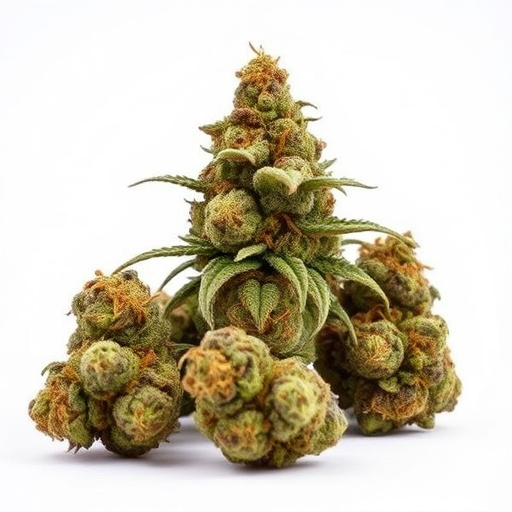
Jamaican weed strains, known for their unique chemical composition, have gained significant attention in the medical cannabis community due to their potent therapeutic properties. These strains are rich in various cannabinoids and terpenes, which work synergistically to offer a wide range of health benefits. Cannabinoids like tetrahydrocannabinol (THC) and cannabidiol (CBD) are the primary compounds responsible for the strain’s effects, with THC known for its psychoactive properties and CBD gaining recognition for its anti-inflammatory and anxiolytic effects.
The specific chemical profile of Jamaican strains contributes to their effectiveness in treating conditions such as chronic pain, anxiety, and inflammation. The high concentrations of terpenes, including myrcene, limonene, and pinene, further enhance the therapeutic experience by interacting with the endocannabinoid system. Myrcene is often linked to sedative and anti-inflammatory effects, making Jamaican weed strains potentially beneficial for managing insomnia and reducing swelling. Terpenes like limonene and pinene are associated with uplifting and energizing properties, which can aid in mood enhancement and cognitive function.
Targeting Specific Medical Conditions with Cannabis Flower Compounds
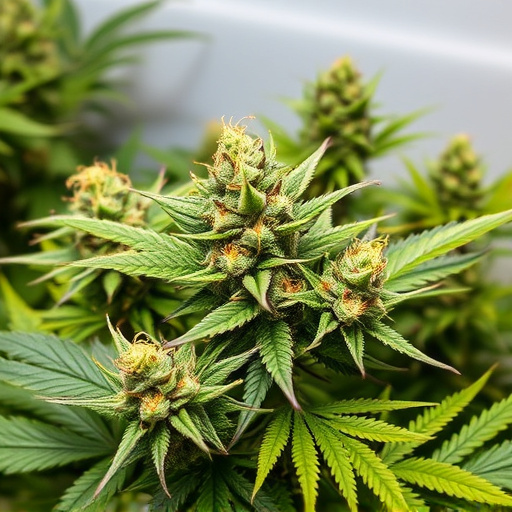
Cannabis flower offers a wide range of medical benefits due to its diverse compound profile, including cannabinoids and terpenes. These compounds interact with the body’s endocannabinoid system, which plays a crucial role in maintaining homeostasis. This interaction can help manage various medical conditions.
For instance, specific Jamaican weed strains are known for their high THC content, which has been linked to effective pain management, making them beneficial for patients suffering from chronic pain or neuropathic conditions. Terpenes present in these strains also contribute to anti-inflammatory properties, further enhancing their therapeutic potential. This targeted approach allows cannabis to provide relief without causing undesirable side effects, making it a promising alternative therapy for many specific medical needs.
Safety, Dosage, and Future Research Directions for Medical Cannabis Use
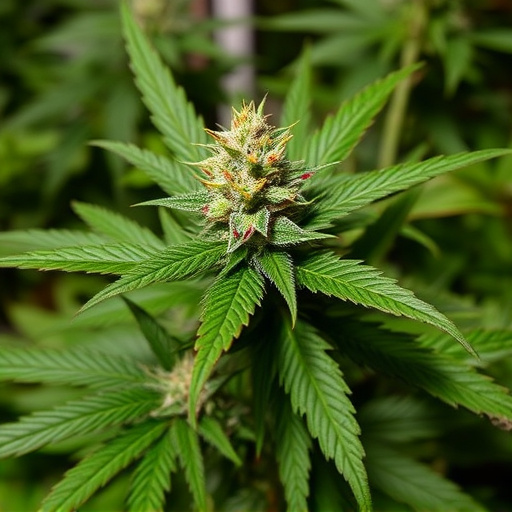
When exploring the medical benefits of cannabis flower, safety is paramount. Unlike some prescription medications with narrow therapeutic windows and significant side effects, cannabis has a relatively low toxicity profile. However, proper dosage is crucial. Different strains, like Jamaican weed strains, can vary greatly in THC (the primary psychoactive compound) and CBD (a non-psychoactive compound with anti-inflammatory properties) content, affecting their effectiveness and potential adverse reactions. Medical professionals often recommend starting with low doses and gradually increasing to find the optimal balance for individual needs.
Future research on medical cannabis holds immense promise. Studies are needed to better understand the complex interplay between various cannabinoids (compounds in cannabis) and terpines (aromatic compounds), especially in tailored treatments for specific conditions. Additionally, exploring different administration methods, such as oral, topical, or inhalable forms, could provide more convenient and targeted delivery of therapeutic benefits. With continued research, medical cannabis has the potential to revolutionize healthcare, offering safe and effective alternatives for managing a wide range of ailments.
Cannabis flower’s medical potential lies in its diverse chemical composition, particularly within Jamaican weed strains. These natural compounds offer targeted relief for various conditions, as evidenced by ongoing research. While safety and dosage remain critical areas of study, the future of medical cannabis looks promising. Further exploration of specific strains and their unique therapeutic properties could lead to innovative treatments, providing a natural alternative for those seeking holistic healthcare options.





